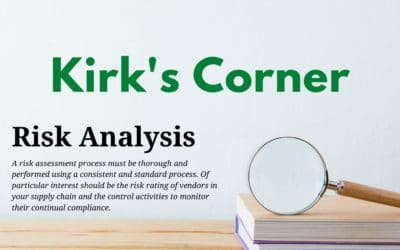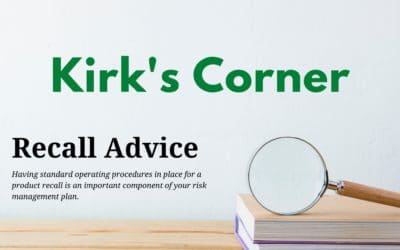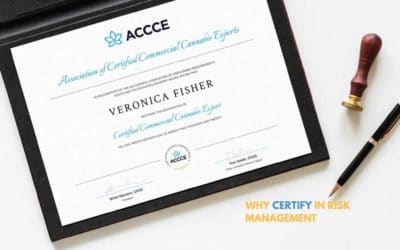A retail dispensary self-reported non-compliant activity and the original fine of $62,500 was reduced to $45,000. Self-reporting is a positive step in addressing non-compliance and sends a positive tone from the top message to all stakeholders. Let’s examine the event and learn from it.
Kirk Barry
Single-Use Glove Recall of Cannabis Flower
Supply chain management risk comes to the forefront in a recent cannabis flower recall. It is reported that contaminated single-use gloves were responsible for a recall of cannabis flower products from a pesticide-free cannabis producer and processor in South Lake Tahoe, California. The antimicrobial chemical o-Phenylphenol was identified as the contaminant found in the FDA-compliant food-grade gloves that the grower used. Kirk Berry breaks down how a risk-based approach can be used to analyze the issue.
Kirk’s Corner – Canopy Advice
After measuring the size of the grows, the LCB determined they were out of compliance by 50%. Based on their determination, the LCB destroyed thirteen thousand pounds of harvested flower that the three growers had produced. Thirteen thousand pounds is a lot to lose so let us dive into this event, discuss risk management and compliance, and how you might approach these issues to avoid being out of compliance.
Kirk’s Corner – Recall Advice
On November 5, 2021, the cannabis compliance board from the state of Nevada issued a public health and safety bulletin for product recalls. The recall included 14 different edible products from one supplier that were distributed to 10 different dispensaries. Kirk provides a succinct analysis and 6 things to consider to make sure you are ready for a recall.
Why Certify in Risk Management
Why do I want my compliance and risk officer(s) to achieve a risk management certification?
A certified compliance officer is better equipped to effectively develop a comprehensive plan to achieve your business objectives. They are trained to spot high-risk activity prior to non-compliance or misconduct. They are better able to understand how to enable all employees to make informed risk-based decisions.
EVALI Analysis: Kirk’s Corner
The EVALI cases in 2019 were certainly a common topic of discussion. After reading this report I would like to highlight a few of the reports interesting conclusions: 1) in states where marijuana policies were in effect, a statistically lower number of EVALI cases were seen, 2) EVALI incidents were about 40% lower in states that allow recreational marijuana use, 3) contaminants found in marijuana vaping products were problematic.
Not all Crime is Organized – Classifying the Illicit Cannabis Market
In North America, it is commonly reported that the illicit cannabis market represents nearly seventy percent of all cannabis transactions. Given this substantial market share, it is necessary to recognize that the illicit cannabis market is more common than the licensed cannabis market.
A Problem Worth Solving: Effective Tools for the Challenges of Inversion and Diversion
The transfer of cannabis products into and out of the licensed sector creates great risk for the cannabis business by jeopardizing their active license and risking substantial fines or license revocation by the regulatory authorities.








